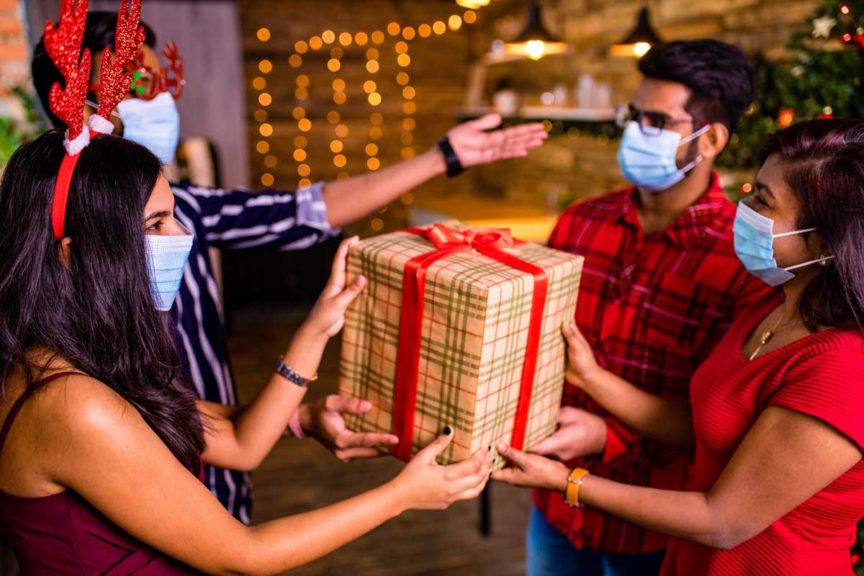 The holiday season is almost here. What can you do to gather safely with family and friends?
The holiday season is almost here. What can you do to gather safely with family and friends?
With the holidays on the horizon, many of us are approaching them with far more optimism than last year. It’s important to remember that we are still not out of the woods. According to the U.S. Centers for Disease Control and Prevention (CDC) more than three-quarters of eligible Americans have received at least one dose of the three available COVID-19 vaccines. While the vaccines didn’t roll out in time for last year’s holiday season, they are expected to be the most important factor in safe celebrations this year.
Because so many generations gather for the holidays, the CDC’s holiday guidance for 2021 says, “…the best way to minimize COVID-19 risk and keep your family and friends safer is to get vaccinated if you’re eligible. Protect those not yet eligible for vaccination, such as young children, by getting yourself and other eligible people around them vaccinated.”
We know firsthand how important socialization is for older adults. In the FiftyForward survey conducted with center members earlier this year, 90 percent of those responding said they had reduced social and recreational outings due to COVID-19. When asked about returning to pre-COVID-19 habits the respondents were split (No – 52 percent; Yes – 48 percent.) In casual conversations, many individuals agree there seems to be newfound optimism now that vaccines are more readily available.
For those who have been vaccinated, it’s important to remember a vaccine alone does not mean you are out of the woods. According to the CDC, breakthrough cases may be rare, but they still can happen regardless of your vaccination status.
Other tips for the holidays:
- Public transportation should be limited and, when necessary, masks should be worn at all times for safety.
- Gatherings should be limited or virtual.
- If you celebrate in person, plan your event for an outdoor location, if possible.
- Wear face masks when indoors.
- When masking up, be sure to wear masks properly covering both your nose and mouth.
- Those who are fully vaccinated should still wear a mask in crowded venues and high-transmission areas.
It is important to remember that wearing a mask has been proven to reduce the risk of COVID-19 exposure, not only for those who wear a mask but also for those around him or her. In addition, mask-wearing helps protect members of your group who may not be vaccinated, have a weakened immune system, or are at risk. Masks are suggested for anyone over the age of two years old.
If you are not vaccinated, remember travel poses a greater risk. The CDC urges everyone who is eligible to receive the COVID-19 vaccination as soon as possible. For those who are not fully vaccinated, it is wise to get tested before you travel. In addition, everyone should continue to follow other safety protocols including social distancing, wearing a mask, and following proper handwashing protocol. After arriving at your destination, if you are unvaccinated, it’s suggested you get a COVID-19 test as soon as possible to ensure you are not carrying the virus to someone else.
Just like any other sound suggestion for getting together — especially during the colder months when we are all gathering indoors and often in close confines — if you are sick or not feeling well do not host or attend a gathering. And if you fall ill to COVID-19 or anything else, have the courtesy to let others with whom you may have contact know as soon as possible.


